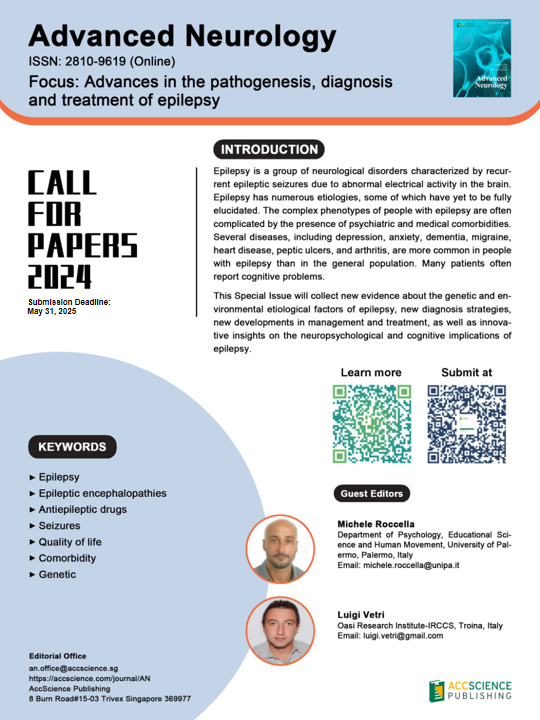
Department of Psychology, Educational Science and Human Movement, University of Palermo, ItalyNeurology and child and adolescent psychiatry; Neurodevelopmental disorders; Encephalopathies; Epilepsies; Neuromuscular diseases; Sleep disorders; Rare denetic syndromes; Neuropsychological disorders

Epilepsy is a group of neurological disorders characterized by recurrent epileptic seizures due to abnormal electrical activity in the brain. Epilepsy has numerous etiologies, some of which have yet to be fully elucidated. The complex phenotypes of people with epilepsy are often complicated by the presence of psychiatric and medical comorbidities. Several diseases, including depression, anxiety, dementia, migraine, heart disease, peptic ulcers, and arthritis, are more common in people with epilepsy than in the general population. Many patients often report cognitive problems.
This Special Issue will collect new evidence about the genetic and environmental etiological factors of epilepsy, new diagnosis strategies, new developments in management and treatment, as well as innovative insights on the neuropsychological and cognitive implications of epilepsy.
Unraveling genetic contributions to neurodevelopmental disorders and epilepsy in a pediatric cohort from a Mexican state
mTOR inhibition in epilepsy: A literature review
Machine learning-based recognition of epileptic and non-epileptic EEG signals
PRMT7-related syndrome imitating mitochondrial disorder: A case report
Refractory musicogenic epilepsy and a surgical cure guided by metabolic neuroimaging: A case report
A review of current status of epilepsy after traumatic brain injuries: Pathophysiology, clinical outcomes, and emerging treatment strategies
The role of high-density lipoprotein and Vitamin D in exercise-induced neuroprotection in epileptic rats
Seizure precipitants among patients at two major referral hospitals in Addis Ababa, Ethiopia: A cross-sectional study (2019)
A comprehensive review of drug-resistant epilepsy and animal models: Existing and emerging therapies and future research directions
Epilepsy: An integrated perspective


